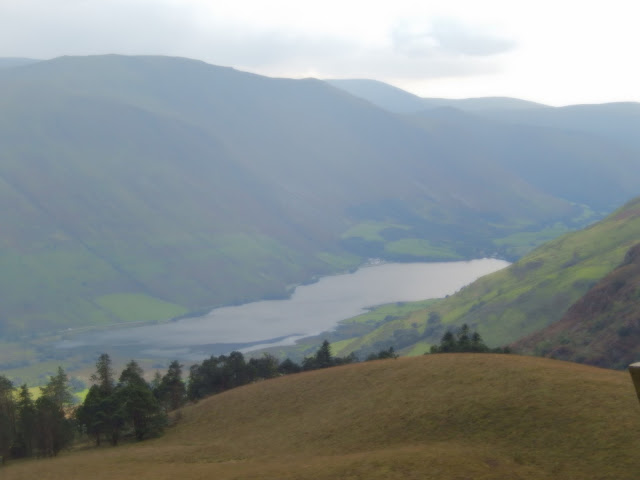 |
| Tal-y-llyn, taken during our descent. The surface looked like glittering tar. |
 |
| Craig Cau |
 |
| Nant Cadair |
 |
| On the early part of the walk |
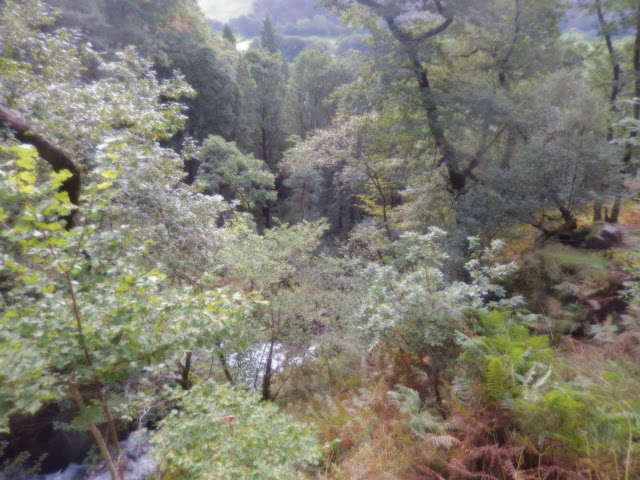 |
| Looking back down Nant Cadair |
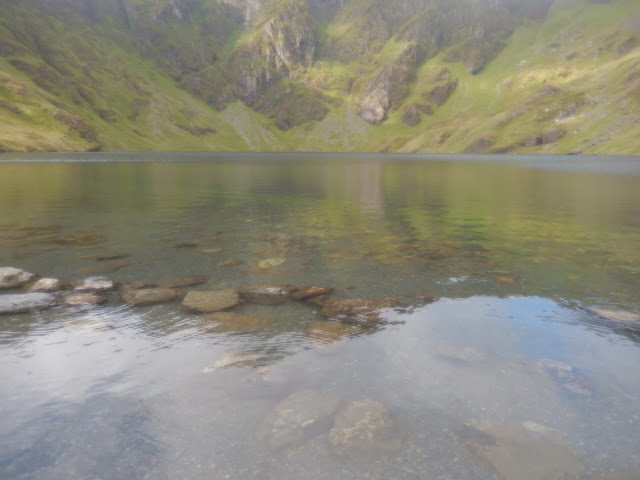 |
| The crystal clear water of Llyn Cau |
Going past enormous rocks left behind the retreating glacier during the last Ice Age, you tackle another steep climb, which heads towards Craig Cau (rockwall). Every now and then you catch glimpses of Llyn Cau down sheer gullies.
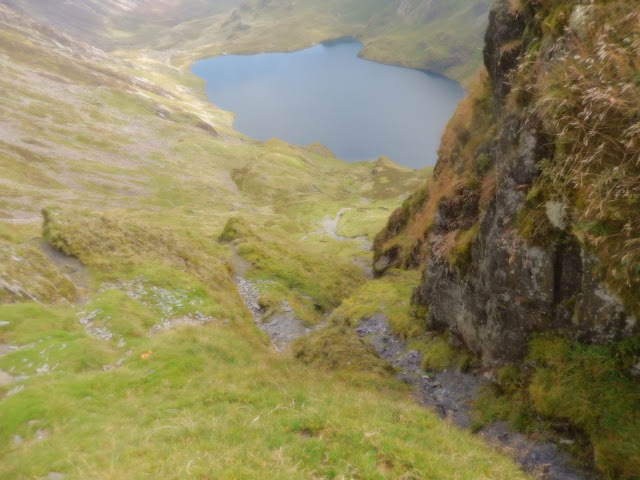 |
| This is where I climbed out of the crater last year |
During much of our climb, the summit was cloaked by cloud, but this cleared for our final ascent and our arrival.
 |
| View back towards Craig Cau |
Although Cadair Idris is the 19th highest peak in Wales (893 m, 2,930 ft), it is the second most popular after Mount Snowdon. This is understandable given the magnificent views available on a clear day: west to the Barmouth estuary, east to the Cambrian Mountains, south to the Brecon Beacons, and north to the Rhinogs and the main Snowdonia massifs.
Video from Penygadair
After we rested at the knoll, enjoyed the far and wide vistas, and checked out the stone hut that proves useful in bad weather, we started our descent across a wide grassy ridge and then hugging the side of Mynydd Moel, which involved crossing a number of trickling streams and boggy areas.
Every now and then we stopped to take photos of the great views back to Craig Cau and Penygadair and marvel at how far we had come, how high we had climbed. The whole track is 4.4 kilometres (2.7 mi) long and involves two climbs of over 300 metres (980 ft), but the trip seemed so much longer and harder than this suggests (though this was probably more a reflection of my fitness ability than anything else).
Eventually, we came to a stile and began a steep descent on a loose, pebble-strewn path that after a while became welcoming slate steps.
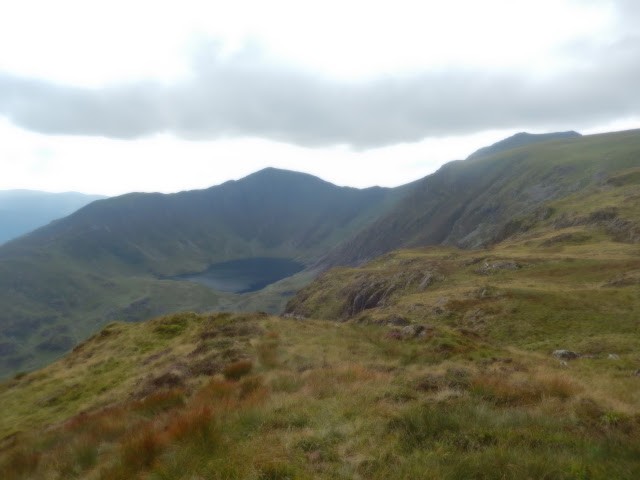 |
| View back, showing Llyn Cau, Craig Cau and the knoll of Penygadair. And we actually climbed that high! |
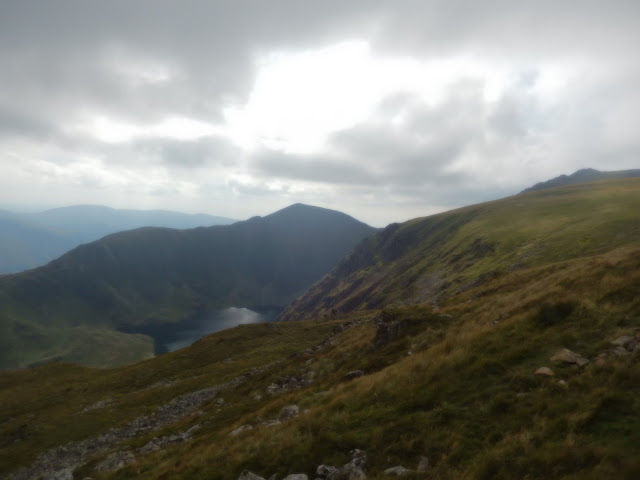 |
| Same view from even farther away! |

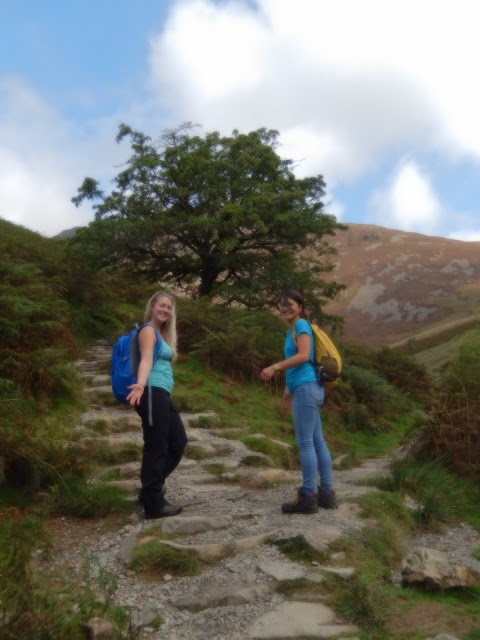
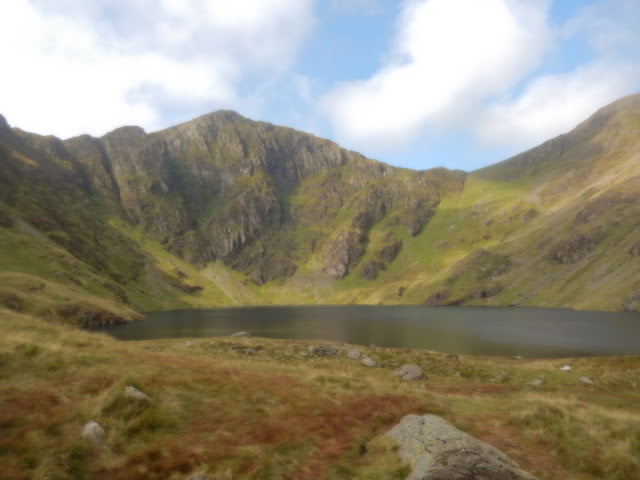
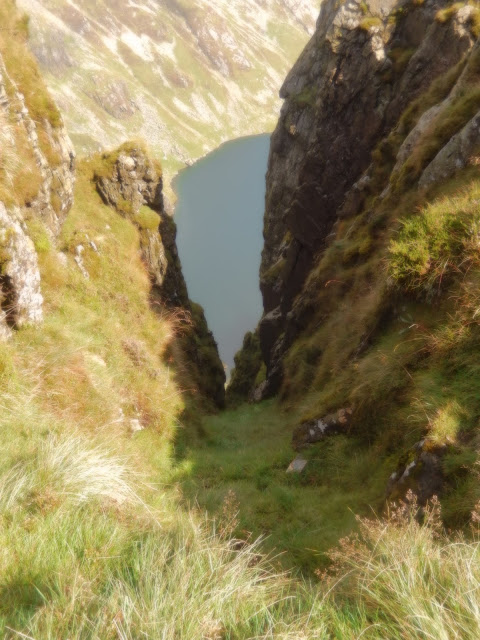


What a wonderful achievement with amazing photos and an incredibly evocative poem to transport us to your heights.
I'm jealous. I've never climbed Cader. Next time…
Back in beautiful Wales I see!
What lovely pictures.
Well done also on achieving such a strenuous climb.
Love your blog – Eflyn
Dear Nadine, Liz and Eflyn
Thanks for your lovely comments about the recent blog, especially the photos. Take a lot of photos with a good camera and some of them should turn out all right 🙂 As for the poem I woke up in the middle of the night with lines running through my head and had to get a draft down. The joys of creativity!
All the best
Earl